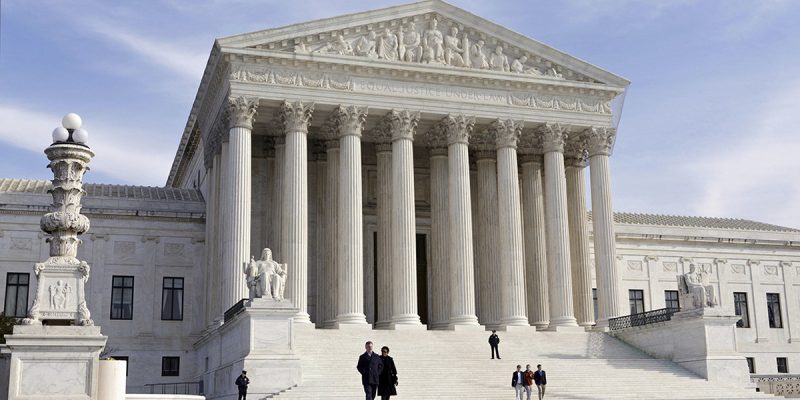Several important United States Supreme Court rulings have been handed down over the last several days. As conservatives we ought to take note of these rulings, not only because they affect us personally in many ways, but also because conservatives are guided by the laws and founding principles upon which this country was created. Unlike the progressive left, we are most certainly not guided by neo-Marxist ideology.
Thankfully, most of these cases went our way.
This past Monday, the Supreme Court Justices “unfroze” action on the Louisiana congressional redistricting case, and simply lifted the hold which the nation’s highest court had placed on further action by the lower federal courts. This action relates back to the Supreme Court’s June 8th 5-4 decision in Alan v. Milligan, which rejected the Alabama congressional redistricting plan previously approved by its legislature, and required that a second minority congressional district be included in the new plan.
Many have asked me where all this leaves the Louisiana redistricting plan? Well, the Supreme Court has now sent the case back down to the full U. S. Fifth Circuit Court of Appeals. While the ruling in the Alabama case is certainly a serious setback for the Louisiana redistricting plan, it does not necessarily mean that our state will be forced to create a second minority congressional district.
While Alabama and Louisiana share many demographic similarities, their geography is a different matter. It would be more difficult to create a second minority district here than in Alabama, where a large and relatively compact minority population exists in the Birmingham area. Our one minority congressional district (the 2nd) is already strung out along the Mississippi River between New Orleans and Baton Rouge for some considerable distance, and a new minority district will be even more difficult to create without violating all of the other traditional criteria used in American redistricting plans over the last several hundred years. Stay tuned as the situation develops.
On Thursday, the Supreme Court had one of its best days ever as it more strongly reaffirmed in Students for Fair Admissions v. University of North Carolina and Harvard College, the principle that using race in college admissions is a practice which is barred under the Equal Protection Clause of the Constitution. Chief Justice John Roberts was quoted in part as follows: “The Harvard and UNC admissions programs cannot be reconciled with the guarantees of the Equal Protection Clause.” That’s about as plain, simple, and forceful as it gets, and the nation can finally begin to close out a disgraceful era spanning several decades of its history, during which the American government sanctioned and even mandated racial discrimination in violation of its bedrock promise of equal treatment.
Also on Thursday, in the case of Groff v. DeJoy, the Supreme Court ruled unanimously in a major case involving freedom of religion, that a postman could not be compelled to continue to work on Sundays, against his religious conviction that Sunday is a day of rest. This case overruled a 1977 case which allowed an employer to deny making allowance for religious accommodations if the employer incurred serious costs by so doing.
Advertisement
In a victory for the doctrine that Congress must clearly delegate its authority before any other branch of government can claim its powers, the U. S. Supreme Court today issued a 6 to 3 ruling along ideological lines striking down the Biden administration’s student loan forgiveness plan in the case of Biden v. Nebraska. The Court found that the statute which the administration had relied upon did not give Biden’s secretary of education the sweeping authority to forgive hundreds of billions of dollars in student loans with the waive of his pen. Ironically, the Court’s decision cited Speaker Nancy Pelosi’s comments during a press conference in 2021 to the effect that only an act of Congress could forgive the debt. Thanks for the help, Nancy!
Widely touted as a $400 billion dollar debt forgiveness to college graduates which would have to be paid for out of the pockets of average American taxpayers (most of whom were not able to attend college), the true eventual cost would likely have been closer to a trillion dollars! Had the Court ruled the other way, this would have set an awful precedent for future students to borrow excessively in the belief that such debts would eventually be forgiven. It would also have brought the nation measurably closer to bankruptcy.
In a big win for freedom of speech, the U. S. Supreme Court today ruled in 303 Creative v. Elenis that Colorado could not force Lorie Smith, a graphic designer, to create artwork which violated her religious beliefs. Ms. Smith wished to create wedding websites, but under Colorado law if she did so, she would be forced to create same-sex wedding sites. In the usual 6-3 ideological split, the majority found that the First Amendment prohibited a state from forcing a website designer to create websites with messages and photos with which the designer disagreed. This is a victory for freedom of speech, and no, it is not an anti-gay ruling by the nation’s highest court, as the progressive left would have you believe.
So there you have it. While we await the action of the U. S. 5th Circuit Court of Appeals in the redistricting case, we can take comfort in the knowledge that we have won important victories involving our fundamental rights.
LOUIS GURVICH, Chairman
Republican Party of Louisiana
Advertisement
Advertisement

